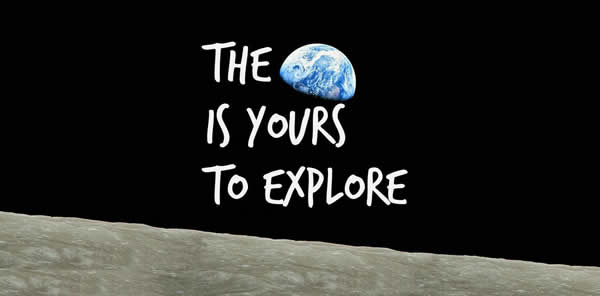Early meetings. People who make things happen.

The road to scientific advance
January 8, 2010
Late meetings. People who make beautiful things.
January 24, 2010Like everyday, this morning I brought my little son to the kinder-garden. On the way I met Tim de Zeeuw, the Director General of ESO. From the window of my office I can see his and I had noticed he had been away for quite some time. I took advantage of this for briefly chatting with him about how jet-lag is annoying and so on. “Yes” – he said – “but sometimes interesting things happen”. I was kind of guessing that something exceptional was coming and the conversation was going to turn into something much less trivial than jet-lag…
And, in fact… “While visiting our sites in Chile, I was sitting in my office in Santiago and, at some point, I got a phone call”, he started off. “The President of Chile was on the other side of the line”. From this point I can only imagine how things went and what follows is a fiction like dialog (but I guess things were not very much different from this).
-“You are planning to build a very large telescope, right?
-“Yes, Madame President, that is true”.
-“Have you already decided where you will put it?”
-“We are in the process, Madame President”.
-“Would you consider placing it in our Country?”
-“Yes, Madame President, we are certainly considering that”.
-“I am glad to hear that, prof. de Zeeuw. What can we do to help you?”
Of course this is only my guess on how things went, Tim did not reveal the real nature of the meeting. But in sight of the big enterprise ESO is going to start soon (that is the building of the largest optical/near-IR telescope on the planet, the E-ELT), I would not be surprised the topic of the discussion was quite an interesting one.
Although I am not in the least involved in these political things and the future of the E-ELT does not depend on my skills and wills, it is quite exciting to be very close to where things happen.
You can find some more details in this ESO press release.
I am now sitting in the meeting room in an hotel, together with other people from my Division. The topic of this 3 days retreat is the revision of the current end-to-end data flow system of the VLT, in sight of the E-ELT era. Yes, because contrary to what I had naively thought when I started my career in astronomy, operating a [big] telescope is not only matter of screws, optics, electronics. It also means scheduling, data archival and distribution, astronomers training, operational plans and so on. And all of this makes into the success of this kind of facilities.
Tomorrow I will jump back to science. The plan is to finish up a paper for the Journal of Archaeastronomy, edited by the University of Texas. In my next post I will talk about this.



3 Comments
Interesting post. However this conversation might have been void, since Chile has a new president-elect: http://www.ft.com/cms/s/0/6226080e-0463-11df-8603-00144feabdc0.html
Yes, that’s right. And, after all, I really do not know what they have been talking about. They might have signed an agreement as well as discussed about pisco-sour 😉
But after the decision by the TMT Observatory Corporation to place the big telescope in Hawaii (after turning down the Chilean site Cerro Armazones, see:
http://www.tmt.org/news/site-selection.htm ) Chile might want to encourage other organizations to place things like the ELT on their soil. Especially if these organizations have a long tradition of “acuerdos” with Chile.
Well, I’d opt to think that the dialog had been going in a manner alike what you’ve posted, because it’d great for all of us to have a new sophisticated Telescope, set up in Chilean territories,
and however astronomically speaking Chile will be more reputed in upcoming months because of the Total eclipse, that traverses along Easter Islands (Pasqua) and a small Range of Chile in July 2010.